Our History
From the beginning, we’ve set the stage for transformative change.
The Home For Good story is rooted in an understanding that it will take a unified, collective effort—of every individual, community, and organization—and an unwavering commitment to our values to end homelessness in L.A. County. Since the beginning, we’ve worked with our partners to set bold and clear goals, assess what is and isn’t working through thoughtful testing and analysis, and adapted our approaches based on what we learn.
In 2007, shortly after launching the first annual HomeWalk, leaders at United Way of Greater Los Angeles (UWGLA), alongside civic and business leaders at the L.A. Area Chamber of Commerce, recognized an opportunity to bring together the individuals and organizations who were already hard at work tackling homelessness and align their interests and resources.
From one of our first pilot programs—the Coordinated Entry System—to today’s vast array of initiatives, Home For Good has built a reputation as a trailblazer that convenes uncommon partnerships and sets the stage for transformative change. We are proud of what we’ve been able to accomplish and know that together, we can produce extraordinary results.
Our Major Milestones
The First Federally-Mandated Homeless Count in L.A. County
Los Angeles Continuum of Care conducted its first Homeless Point-In-Time Count, which found that homelessness was widespread across L.A. County, with no neighborhood unaffected by the crisis.
Housing First Tested in L.A. County
Project 50 Pilot demonstrated the success of a systemic approach to the Housing First model in L.A. by providing housing and integrated supportive services to the most vulnerable homeless adults previously living on the streets of Skid Row.
Creating Pathways Out of Poverty Plan
UWGLA released a plan to focus the organization’s mission on creating pathways out of poverty for L.A.’s most vulnerable residents, recognizing that housing, homelessness, education, and economic mobility were a few of the critical areas of focus and that UWGLA was positioned to support collective impact initiatives to end homelessness.
The First HomeWalk
UWGLA held its first annual Homewalk to increase public and political support for solutions to end homelessness in L.A. County. Since 2007, HomeWalk has brought together more than 125,000 people from across Los Angeles County and raised over $9.5 million that have helped move over 20,000 people into homes.
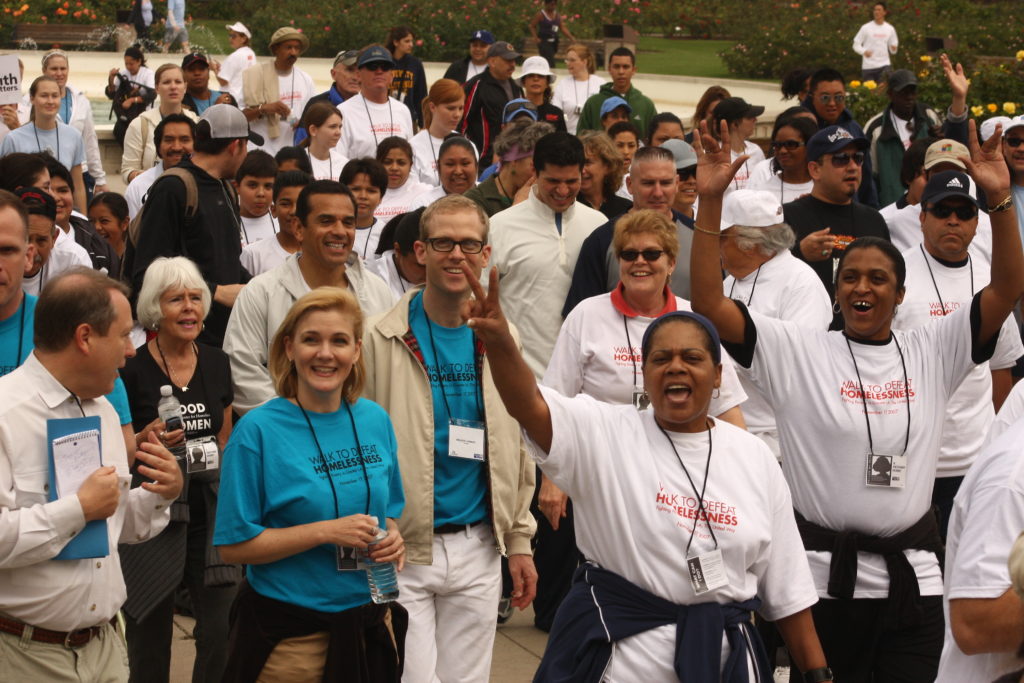
Economic Recession
The Great Recession disproportionately impacted low-income, BIPOC communities, especially Black Americans who were particularly targeted during the predatory subprime loan boom that led to the recession. Due to an inequitable economic recovery and a long history of exclusionary, racist housing policy and zoning, more and more low-income and BIPOC individuals and families faced housing insecurity, and Los Angeles saw a dramatic rise in homelessness.
Formation of the Business Leaders Task Force
UWGLA partnered with the L.A. Chamber of Commerce to engage business leaders in the development of a plan to end chronic and veteran homelessness and increase coordinated, collective effort around homelessness in L.A.
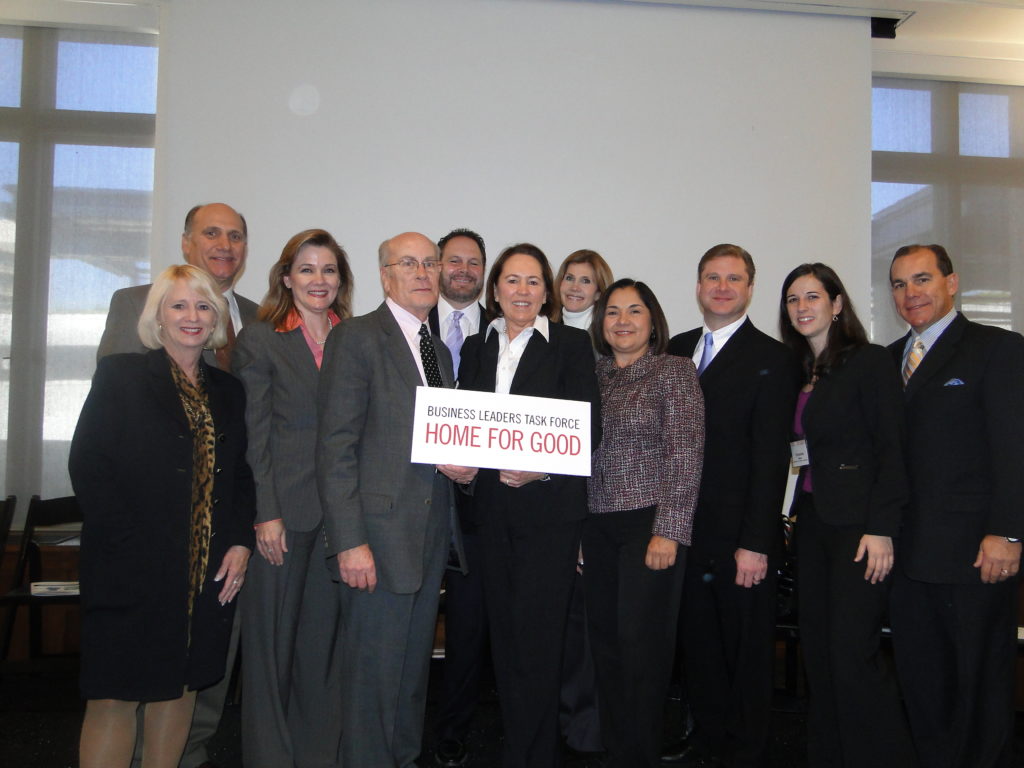
Homeless Cost Study
UWGLA commissioned a study of the costs of homelessness and supportive housing, which revealed that it was nearly 43 percent less expensive to provide housing for our chronically homeless neighbors than to leave them on the streets, highlighting the great public cost of homelessness and the enormous savings that investing in solutions would provide.
Home For Good Action Plan Released
We engaged over 100 systems leaders and held working sessions with our diverse, cross-sector community partners to develop an action plan to end chronic and veteran homelessness in Los Angeles County. The first of its kind in L.A., the plan included an ambitious collective vision that highlighted the unique role that all sectors and communities must play in addressing the homelessness crisis. More than 50 leaders across sectors pledged their support for the plan, and the Home For Good initiative was born.
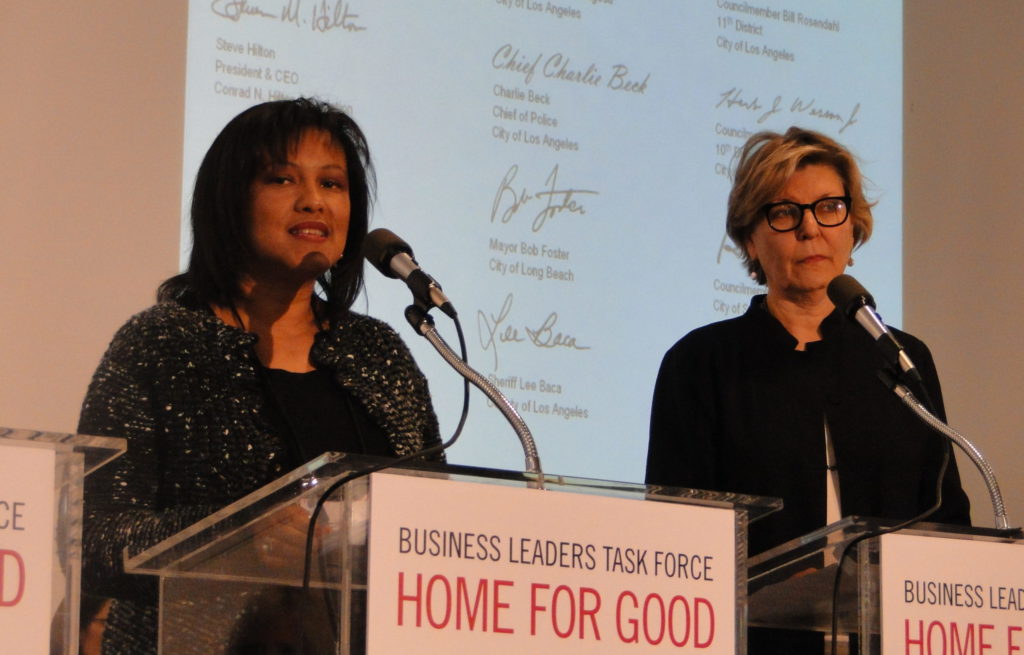
Home For Good Funders Collaborative Launched
Launched with the help of a $1 million challenge grant from the Conrad N. Hilton Foundation, the Home For Good Funders Collaborative brought together public and private funders. The first investment tested dedicating a set of housing vouchers for chronically homeless individuals. This model became foundational to our system’s pivot to the prioritization of people with the highest needs for limited permanent housing resources.
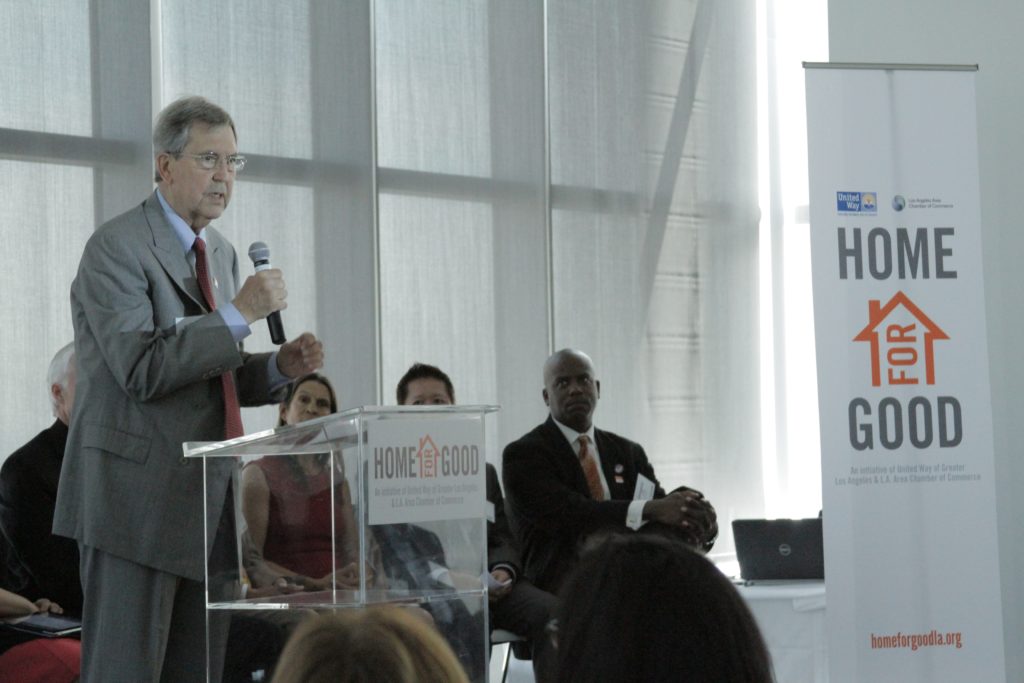
Action Plan Updated
By 2012, over 100 organizations and leaders from across the region stepped forward to help create the momentum we needed to permanently change the housing and homelessness system. An updated plan was released, which included detailed year-one progress updates, supported with significant system data that highlighted where L.A. was succeeding and where it was falling short of its goals. It further outlined specific actions that all system partners could take to push the system forward, from elected officials and philanthropic funders to community members and faith leaders. An additional progress report was issued in 2015.
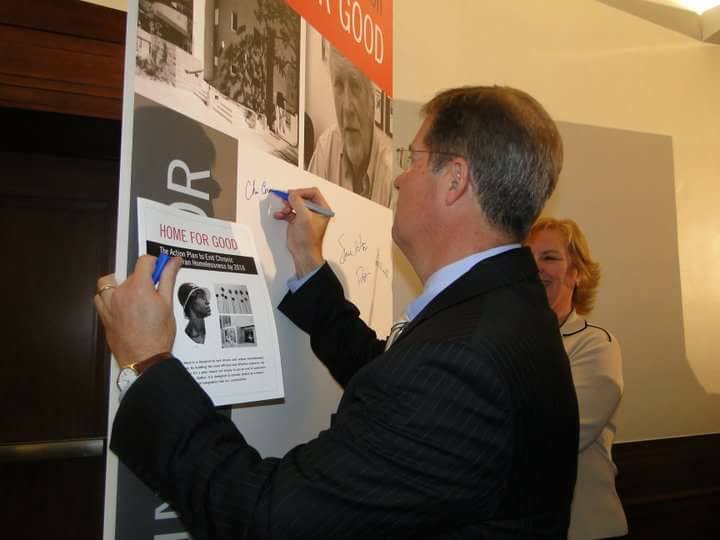
Launched Coordinated Entry System (CES) Pilot
Entry into L.A. County’s homeless services system was extremely complicated. We led coordinated efforts to provide a more efficient path for people to move from the streets into housing. As the program scaled, Los Angeles Homeless Services Authority (LASHA) took on oversight of this system, which continues to evolve. Today, HFG continues to influence CES through our role on the CES Policy Council.
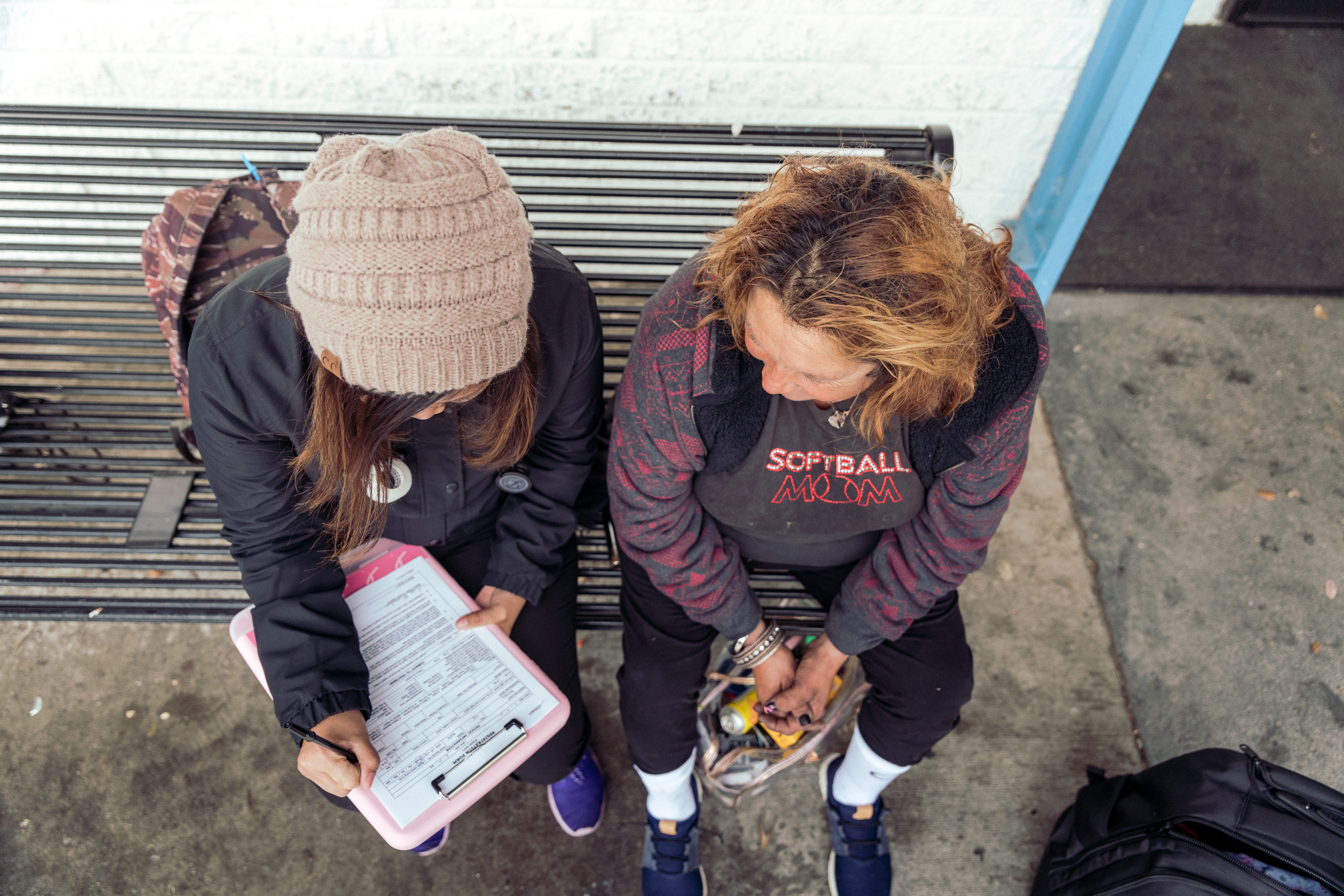
Established Standards of Excellence
A large group of stakeholders developed a set of performance goals and quality standards for outreach programs, emergency/crisis/interim housing, and permanent supportive housing.
Created Homelessness Analysis Collaborative
The policy table was formed to centralize and simplify the most up-to-date data and research concerning people experiencing homelessness in L.A. Public partners were convened to discuss issues such as tracking housing placements, identifying, and measuring performance metrics.
The Homeless Count Becomes Annual
A decade after the first count, homelessness continued to rise across the nation following the recession. This ten-year marker showed that although our system had grown and strengthened its capacity, greater resources were needed to meet the scale of the housing and homelessness crisis. This year, LAHSA decided to make the count annual to allow for better trend analysis and progress tracking, as called for in the Home For Good Action Plan.
L.A. County Homeless Initiative Launched
L.A. County Board of Supervisors launched the Homeless Initiative to coordinate a countywide response to the homelessness crisis.
Comprehensive Plans to Address Homelessness
City of L.A. and County of L.A. released comprehensive plans to address homelessness, a priority objective in the Home For Good Action Plan.
Passage of Prop HHH and Measure H
For both Prop HHH and Measure H, we helped set the stage through our long-standing efforts in systems-building and investments in capacity-building. We partnered with elected and community leaders to help draft ballot opportunities and led grassroots campaigns to mobilize support. Since their passage, we have played an active role in planning and implementation.
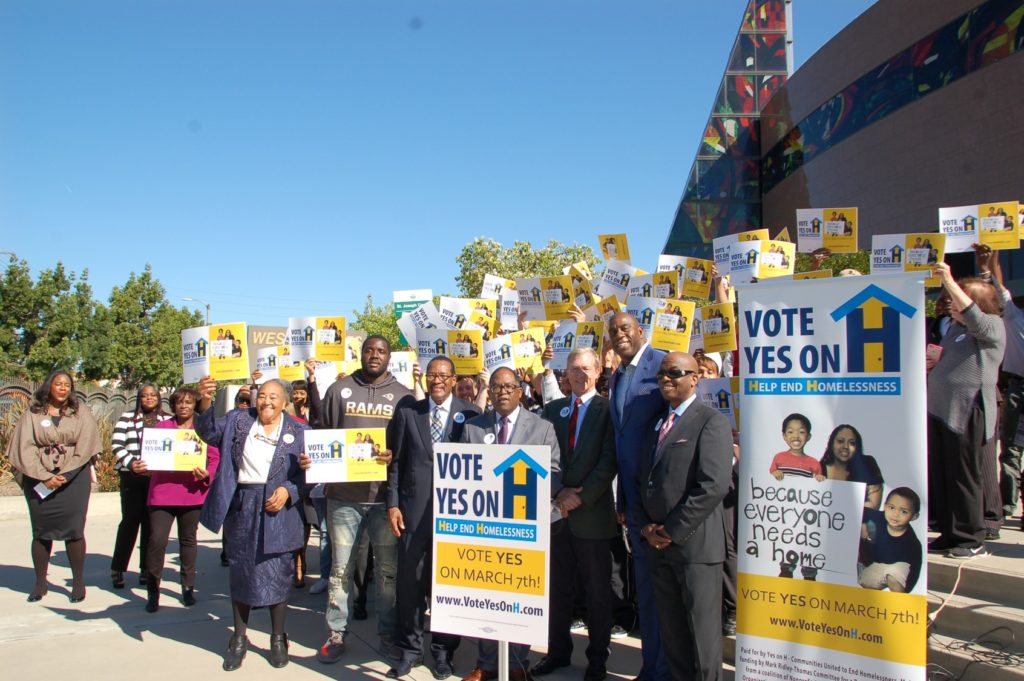
Launch of Homelessness Policy Research Institute (HPRI)
Established with support from the Conrad N. Hilton Foundation and the Home For Good Funders Collaborative, HPRI has become a lead facilitator for local homelessness and housing research, helping to establish a more responsive, co-designed approach to research studies and fostering transformational partnerships between research, policy, and practice. Home For Good continues to invest in its infrastructure and research efforts.
Established Countywide Data Tracking
Home For Good engineered the development of the first countywide homeless data dashboards.
L.A. Homelessness Challenge
The Home For Good Funders Collaborative and Watt Companies Inc. invited individuals and organizations to submit proposals for innovative solutions to assist people experiencing homelessness in L.A. County. Five finalists pitched in front of a panel of judges, and two winners received $200,000 to implement their ideas: Illumination Foundation’s Micro Community program and Venice Family Clinic’s Street Medicine training program.
Accelerating Supportive Housing Challenge
We challenged developers to design innovative, scalable supportive housing concepts. Sixteen concepts were chosen and supported with $5 million in pre-development and recoverable grant funds to support the development of an estimated 1,400 supportive units.
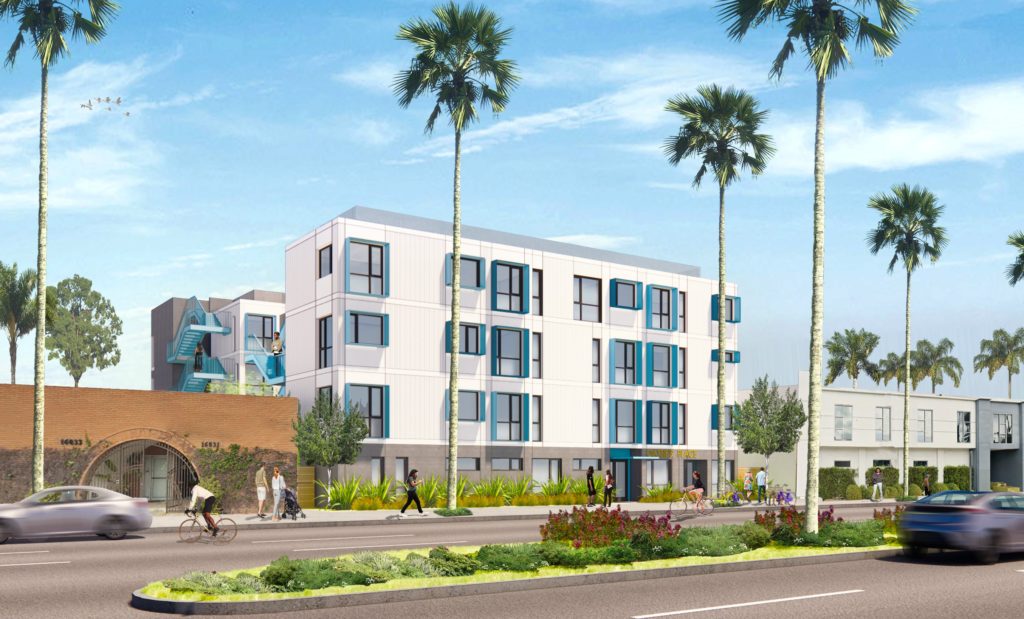
COVID-19 Homelessness Emergency Response
During the COVID-19 pandemic, our system rapidly responded to the crisis by investing unprecedented resources to provide safe places for our most vulnerable unhoused neighbors to take shelter. Los Angeles dramatically scaled access to interim housing through the master leasing of 38 motels and hotels through the state’s Project Roomkey program and expanded our permanent housing portfolio through the acquisition of 28 Project Homekey sites. We provided PPE and critical supplies to frontline service workers and their clients and supported the distribution of food and supplies at interim housing sites for COVID-vulnerable people experiencing homelessness. Our team worked alongside our public partners to inform and help implement the COVID Recovery Plan and coordinate and advocate for equitable vaccine distribution efforts for people experiencing homelessness.
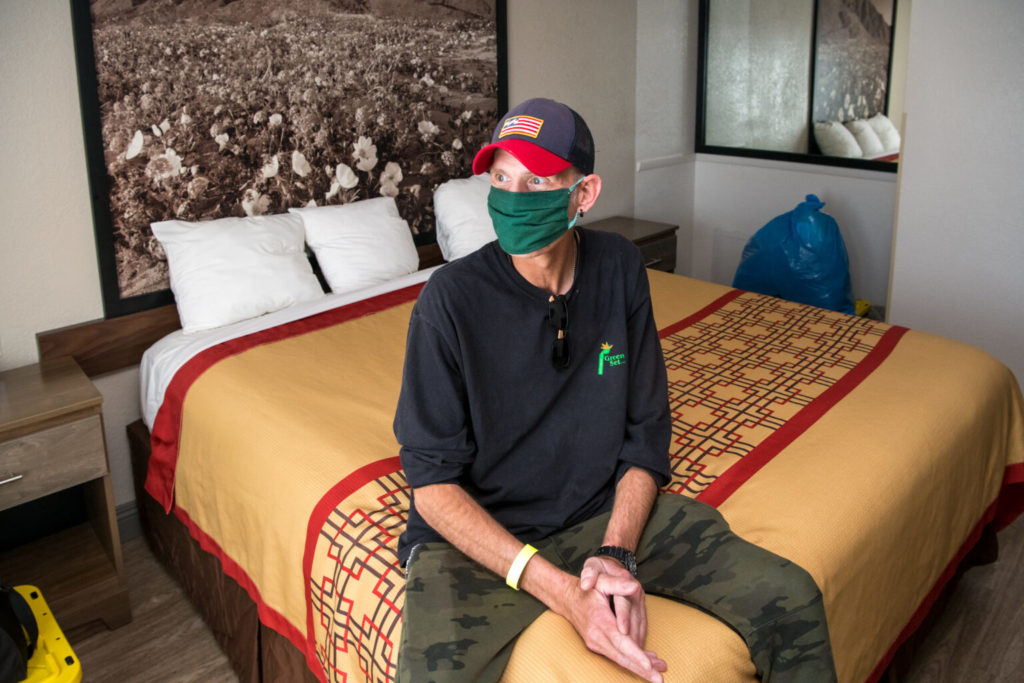
Health Pathways Expansion
At the start of the pandemic, we convened a cross-section of health and homeless services providers and healthcare funders to identify opportunities to leverage flexible philanthropic funding to support improved system integration and healthcare access for unhoused Angelenos. We quickly identified an opportunity to support ongoing healthcare for individuals coming inside to Project RoomKey and City shelters. This led to the $3 million Health Pathways Expansion program, a collaborative effort led by Home For Good and California Community Foundation, with support from Cedars-Sinai, L.A. Care Health Plan, Providence, and UniHealth Foundation, which supported sixteen healthcare providers to get 3,600 new people engaged in care and ~2,000 people enrolled in health insurance. Click here to learn more.
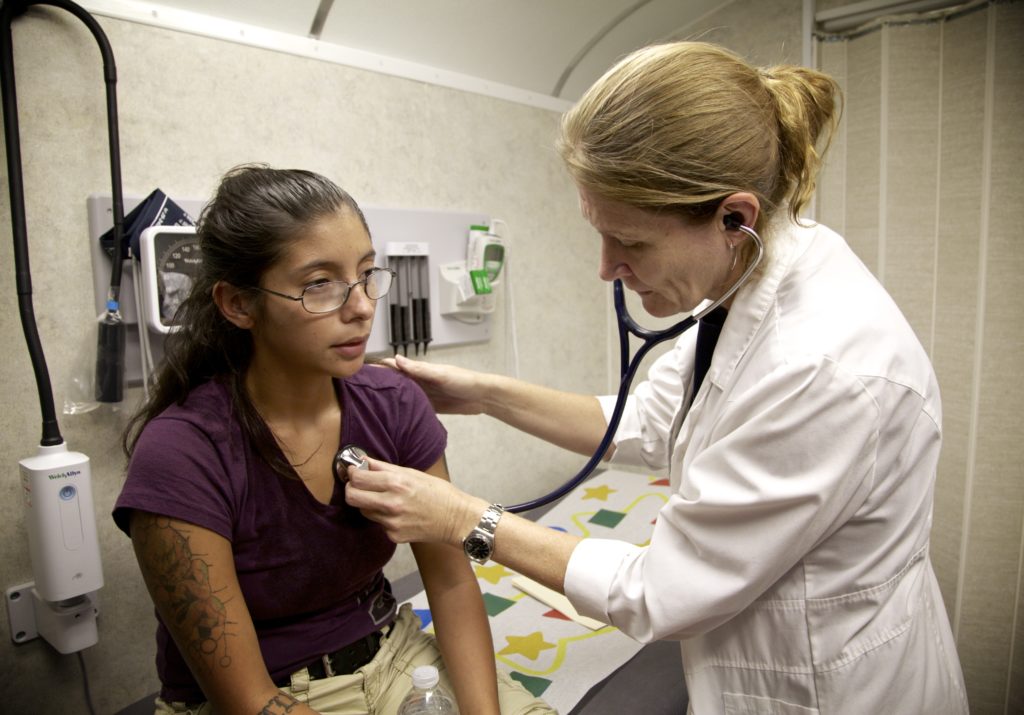
Passage of Measure J
United Way of Greater Los Angeles came together with the Re-Imagine L.A. County coalition, a diverse cross-section of countywide advocates and leaders to develop and pass Measure J. This ballot measure amended the L.A. County Charter to require that at least 10% of locally controlled revenue is invested into local communities and alternatives to incarceration. Today, HFG continues to shape the implementation of Measure J through our work with Reimagine L.A. Coalition partners.
Launch of the Street Strategy
After publishing The Street Strategy For L.A. County in 2020 (also available in Spanish), Home For Good secured investments and began implementing Street Strategy projects. These included creating a Shelter Improvement Initiative, increasing health care access to unsheltered populations, securing more funding for mental health services through Measure J, and pushing for more immediate housing options like the acquisition and conversions of hotels/motels. We also created the Street Strategy Annex, which provides concrete recommendations for managing encampments with more consistency and predictability. This helped inform and led to the passage of LA City’s first Street Engagement Strategy.
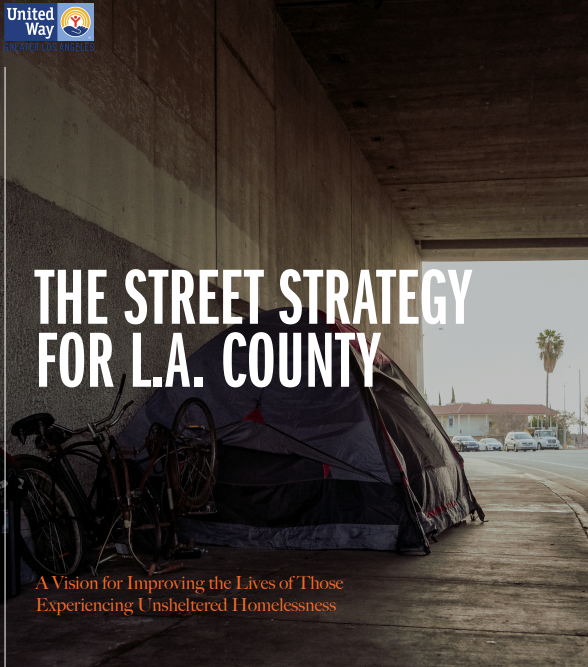
Launch of the Older Adult Strategy
Today’s unhoused older adults are part of a generational cohort that has been disproportionately vulnerable to homelessness for decades, and our window to exit them from homelessness is closing. That is why the Home For Good (HFG) team is working with our philanthropic, public, non-profit, and private-sector partners to help unify our community around a bold vision of ending homelessness
among older adults (i.e. those age 55 and older) and seniors (i.e. those age 65 and older) in L.A. County. In 2022, HFG published a strategic roadmap, in English and Spanish, to help funders and policy makers better understand the crisis and the opportunities to pioneer promising approaches, improve coordination across coalitions, and scale the most transformative, equitable solutions.
Click on the links to see the Older Adult Strategy in English or Spanish.